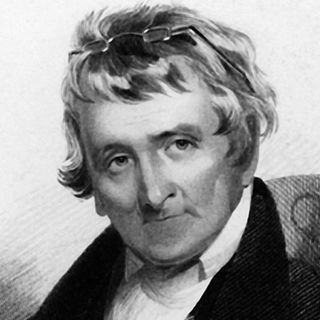A Quote by Archibald Alexander
In vain do we seek to awaken our churches to zeal in evangelism as a separate thing. To be genuine it must flow from love to Christ. It is when a sense of personal communion with the Son of God is highest that we shall be most fit for missionary work, either ourselves or to stir up others.
Related Quotes
As disciples of Christ, we need to feel genuine charity for one another. As we do, new light will come into our own lives. This charity is essential in missionary work, but we must never allow ourselves to treat our neighbors only as potential converts. We have had the sad experience of seeing members of the Church who attempted to convert their neighbors and friends and, when they did not respond, withdrew their friendship and neighborliness. We must not be so anxious to share the gospel that we become insensitive to the feelings of others.
We must share the gospel with others. That is our responsibility-every member a missionary. That is the call of prophets of God. ...Member-missionary work is one of the great keys to the individual growth of our members. It is my conviction that member-missionary work will raise the spirituality in any ward where applied
God’s love sets us free from the need to seek approval. Knowing that we are loved by God, accepted by God, approved by God, and that we are new creations in Christ empowers us to reject self-rejection and embrace a healthy self-love. Being secure in God’s love for us, our love for Him, and our love for ourselves, prepares us to fulfill the second greatest commandment: To love our neighbor as ourselves.
In order to deserve, we must pay our dues and steadily work for perfection. We must relish in struggle, and relinquish pride. We must dispel fear and seek enlightenment. We must shun division and honor love. We must know our hearts and seek to understand others. We must try, live, create, feel, grow and love.
All true obedience comes from the heart. It was heart work with Christ. And if we consent, He will so identify Himself with our thoughts and aims, so blend our hearts and minds into conformity to His will, that when obeying Him we shall be but carrying out our own impulses. The will, refined and sanctified, will find its highest delight in doing His service. When we know God as it is our privilege to know Him, our life will be a life of continual obedience. Through an appreciation of the character of Christ, through communion with God, sin will become hateful to us.
Is the Son of God praying in me, or am I dictating to Him?... Prayer is not simply getting things from God, that is a most initial form of prayer; prayer is getting into perfect communion with God. If the Son of God is formed in us by regeneration, He will press forward in front of our common sense and change our attitude to the things about which we pray.
If we don't love ourselves, we would not love others. When someone tell you to love others first, and to love others more than ourselves; it is impossible. If you can't love yourselves, you can't love anybody else. Therefore we must gather up our great power so that we know in what ways we are good, what special abilities we have, what wisdom, what kind of talent we have, and how big our love is. When we can recognize our virtues, we can learn how to love others.
The ecclesial communities which have not preserved the valid Episcopate and the genuine and integral substance of the Eucharistic mystery, are not Churches in the proper sense; however, those who are baptized in these communities are, by Baptism, incorporated in Christ and thus are in a certain communion, albeit imperfect, with the Church.
A Christian is one who recognizes Jesus as the Christ, the Son of the living God, as God manifested in the flesh, loving us and dying for our redemption; and who is so affected by a sense of the love of this incarnate God as to be constrained to make the will of Christ the rule of his obedience, and the glory of Christ the great end for which He lives.
There is in us an instinct for newness, for renewal, for a liberation of creative power. We seek to awaken in ourselves a force which really changes our lives from within. And yet the same instinct tells us that this change is a recovery of that which is deepest, most original, most personal in ourselves. To be born again is not to become somebody else, but to become ourselves.
Because the Christian God is not a lonely God, but rather a communion of three persons, faith leads human beings into the divine communion. One cannot, however, have a self-enclosed communion with the Triune God- a "foursome," as it were-- for the Christian God is not a private deity. Communion with this God is at once also communion with those others who have entrusted themselves in faith to the same God. Hence one and the same act of faith places a person into a new relationship both with God and with all others who stand in communion with God.





































